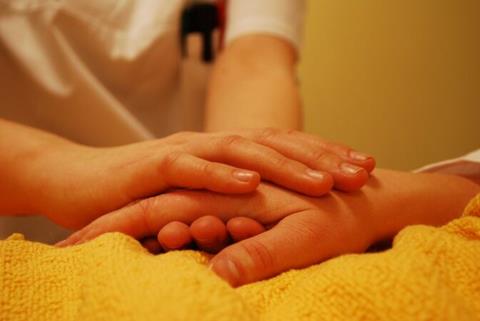A vote to legalise assisted dying across the UK could be imminent, according to some media reports. If passed, it could bring about one of the biggest social changes in the UK since the 1967 Abortion Act. George Pitcher says the issue deserves a proper, unemotional debate

Labour MP Jake Richards has won a ballot in parliament to bring a private member’s bill before the House of Commons to legalise assisted suicide. Meanwhile, terminally ill Esther Rantzen last weekend appealed once again to prime minister Sir Keir Starmer to make time for a free vote of MPs on the issue.
One hopes for a calm and civilised secular debate on the subject. But, if this is not a distasteful phrase under the circumstances, don’t hold your breath.
I am vehemently opposed to assisted suicide, or voluntary euthanasia. A decade ago, I couldn’t express my opinion without someone from the pro lobby responding that my views, as a priest, are predicated on the “sanctity of life” (a phrase I have never used in this context) and, consequently, were irrelevant to anyone who doesn’t share my faith.
In reality, my views are almost all, if not entirely, secular. I believe it’s very dangerous when the state sanctions in law the view that some lives are more worth living than others; that there are effectively two tiers to human existence, those who should be protected and those who are disposable. I hold that the legal burden of proof of motive should be on those who assist a suicide, not on the state to prove that they acted coercively.
Worth it for the one
No one can guarantee that assisted suicide safeguards are watertight, so how many lives lost unnecessarily are deemed worth it for those who want assisted dying to have their way? One? Ten? 100? More?
Even Lord Falconer, the parliamentary poster boy for assisted suicide who convened a ludicrous ‘independent’ commission in 2012 stuffed with euthanasia enthusiasts, has accepted that no so-called safeguards can entirely ensure that lives will not be lost to malfeasance or malpractice.
We need is a proper debate based on evidence rather than emotions
The latest iteration of this kind of exercise – propaganda parading as research – emerged last week when a “citizens’ jury” of 28 people (yes, just 28 and comprised of people who had already made their minds up) came out in favour of a change in the law.

Among the gimmicks to emerge from this morbid death cult is the “Tesla of euthanasia”, a Swiss pod that – God help us – is effectively a glamorised gas chamber. The first proposed victim of the Sarco pod was cancelled in July for, unsurprisingly, mental health reasons.
A dignified discussion
What we need is a proper debate based on evidence rather than emotions. It’s not so long ago that some of those who profess to support dignity in dying were posting that they hoped I would die an agonising cancerous death. And they accuse me of consigning patients to unnecessary suffering?
A dignified secular discussion of assisted suicide - which can include people of faith - looks more like this: Alice Thomson writing in The Times that, having witnessed the harms that have occurred in other jurisdictions, she’s changed her mind on supporting it, because she “doesn’t want to hasten anyone else’s death”.
No one can guarantee that assisted suicide safeguards are watertight
It looks like Rachel Clarke, the palliative care doctor and author (on whom the ITV Covid-19 drama Breathtaking was based) revealing in The Guardian that the issues on the frontline are hugely complex and less about whether suffering at end of life could be lessened by assisted dying than about the scant resources available to relieve that suffering in the first place.
It also looks like Amy Bloom, writing with great dignity about taking her husband, diagnosed with Alzheimer’s, to die at Dignitas in Switzerland. In Love (Random House) is hard to read, principally because of the tears in one’s eyes.
A good death
I used to be surprised and disappointed that those who debated me on assisted suicide seldom (if ever) took me into a more fruitful area - and one in which my opposition to assisted dying would be most vulnerable. Since medical science means we’re living longer and are consequently subject to many more degenerative life conditions, what are my proposed solutions to intolerable suffering?
My historical response would be that palliative care, of Clarke’s sort, is advancing at such a pace that we shouldn’t jeopardise it by offering assisted suicide as a treatment option (or opt-out); fairly soon, we will reach a place where no one, outside a trauma ward, need die a bad death.
That desired destination is entirely threatened by legalised assisted suicide. We really need to address what we want in our society from end-of-life care. We must address the liberation of doctors from the prospect of ruinous litigation for allowing patients to die comfortably when their time has come, without officious interventions.
That doesn’t mean helping to kill them, it means letting them die. That is a big moral distinction. We can surely all meet in this place - people of faith and none - and, as it happens, all agree that we’re honouring the sanctity of life in our own ways.






































1 Reader's comment